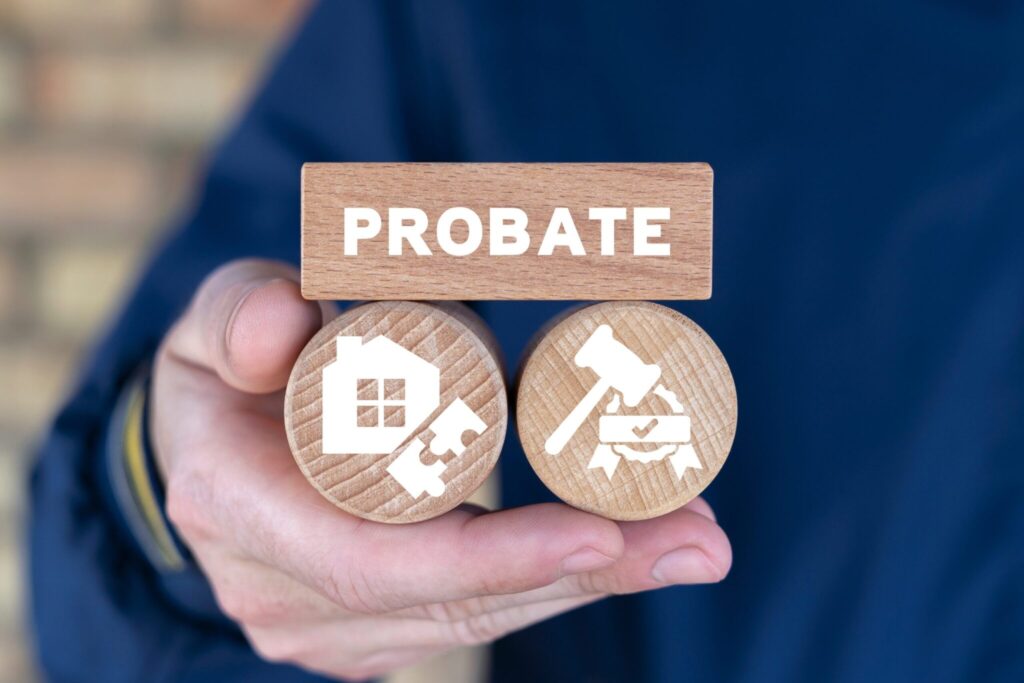The process of handling probate real estate in Texas is often complex, combining legal requirements, family dynamics, and financial considerations. When faced with selling a property as part of an estate, many executors and heirs explore the possibility of selling directly to a developer. This option can provide speed, convenience, and financial benefits, but it is not without its challenges. In this article, we will delve into the intricacies of selling probate real estate in Texas directly to a developer, examining the legal framework, procedural steps, advantages, and potential pitfalls of such a transaction.
Understanding Probate and Probate Real Estate in Texas
Before delving into the specifics of selling to a developer, it is essential to understand the probate process in Texas and how real estate fits into it. Probate is the legal process by which a deceased person’s estate is settled, their debts are paid, and their remaining assets are distributed to heirs or beneficiaries.

What Is Probate Real Estate?
Probate real estate includes any property owned solely by the deceased at the time of death. This can range from family homes and vacation properties to commercial buildings and undeveloped land. Such properties often need to be sold for various reasons, such as settling debts, dividing assets among heirs, or simplifying the estate administration process.
In Texas, real estate that was held jointly with rights of survivorship does not typically go through probate, as it automatically passes to the surviving owner. However, real estate solely owned by the deceased becomes part of the probate estate and must be managed according to state laws.
The Probate Process in Texas: A Foundation for Selling
The probate process in Texas is known for being relatively straightforward compared to other states, but it still requires careful attention to legal and procedural details. Texas offers two primary types of probate administration: independent administration and dependent administration.
Independent Administration
Under independent administration, the executor or administrator has significant authority to manage the estate without extensive court oversight. This includes the ability to sell real estate without seeking court approval. Independent administration is the most common type of probate in Texas, particularly when the will explicitly grants such authority or all heirs agree to it.
Dependent Administration
Dependent administration involves close supervision by the probate court. Executors or administrators must seek court approval for most actions, including selling real estate. This process is more time-consuming and expensive, often reserved for cases where disputes exist among heirs or the will does not grant independent authority.
Selling Probate Real Estate: Is a Developer the Right Buyer?

When it comes to selling probate real estate, executors or administrators have several options. Traditional buyers, real estate investors, and developers each present unique advantages and challenges. Selling directly to a developer can be particularly appealing under certain circumstances.
Why Developers Are Interested in Probate Properties
Developers are often drawn to probate real estate for its potential. Many such properties are older homes on large lots, commercial properties in high-demand areas, or undeveloped land ripe for redevelopment. Developers may see opportunities to create residential subdivisions, commercial centers, or mixed-use projects.
Additionally, probate properties are frequently sold “as-is,” which appeals to developers willing to invest in renovations or redevelopment. Their interest in the property’s potential, rather than its current condition, often results in faster and simpler transactions.
Legal Considerations When Selling Probate Real Estate to a Developer
Selling probate real estate in Texas involves navigating a complex web of legal requirements. Executors and administrators must ensure compliance with state laws while protecting the interests of the estate and its heirs.
Authority to Sell
The authority to sell probate real estate rests with the executor or administrator. This authority is granted either by the will (for executors) or by the court (for administrators). If the estate is under independent administration, the executor generally does not need court approval to sell real estate. In dependent administration, however, the sale must be authorized by the probate court.
Title and Ownership
Before a sale can occur, it is crucial to confirm clear ownership of the property. A title search can reveal any liens, unpaid taxes, or other encumbrances that must be addressed. Title issues can delay or complicate the sale, so resolving these matters early is essential.
Heir Consent
In cases where multiple heirs are involved, their consent may be necessary, particularly if the will does not explicitly grant the executor the power to sell real estate. Disagreements among heirs can lead to delays, legal disputes, and, in some cases, the involvement of the court to mediate or resolve conflicts.
Tax Implications
Selling probate real estate can have tax consequences for the estate and the heirs. Capital gains taxes may apply if the property’s sale price exceeds its appraised value at the time of the deceased’s passing. Consulting a tax advisor can help minimize tax liabilities and clarify how the sale proceeds will be distributed.
The Process of Selling Probate Real Estate to a Developer
Selling probate real estate to a developer involves a series of steps, from preparing the property to closing the deal. Each phase requires careful planning and execution to ensure compliance with legal requirements and to maximize the financial benefit to the estate.
Preparing the Property
The first step in selling probate real estate is preparing the property for sale. This includes:
- Conducting a Title Search: Ensuring clear ownership and identifying any liens or encumbrances.
- Obtaining a Professional Appraisal: Determining the property’s fair market value is crucial for negotiating a competitive offer.
- Securing the Property: Preventing vandalism, trespassing, or damage is essential, particularly for vacant properties.
Engaging Developers
To sell directly to a developer, the executor or administrator must identify developers interested in the property. This often involves:
- Researching developers who specialize in the type of property being sold.
- Highlighting the property’s development potential, such as its location, zoning, or lot size.
- Soliciting offers from multiple developers to ensure a competitive bidding process.
Negotiating the Sale
Once offers are received, the executor or administrator should carefully evaluate each proposal. Consider factors such as:
- The offered price relative to the property’s appraised value.
- The developer’s track record and reliability.
- The terms and conditions of the sale, including contingencies and closing timelines.
It is advisable to consult with a probate attorney or real estate professional to ensure the transaction terms are favorable and legally sound.
Closing the Deal

The final step is closing the sale. If the estate is under dependent administration, court approval will be required before the transaction can proceed. The executor or administrator must file a motion with the court and provide notice to all interested parties. Once approved, the sale can be finalized, and the proceeds distributed according to the will or intestacy laws.
Benefits of Selling to a Developer
Selling probate real estate to a developer offers numerous benefits:
- Speed: Developers often move quickly to close transactions, reducing the time the estate remains in probate.
- Convenience: Developers typically purchase properties “as-is,” eliminating the need for repairs or updates.
- Competitive Offers: Developers may pay a premium for properties in desirable locations or with high development potential.
Challenges and Risks
Despite its advantages, selling to a developer also involves potential risks:
- Low Offers: Some developers may offer below-market prices, especially if they perceive the seller as eager to finalize the transaction quickly.
- Legal Disputes: Disagreements among heirs or unresolved title issues can delay or jeopardize the sale.
- Zoning and Development Restrictions: Developers may back out if the property’s zoning or local regulations restrict their plans.
Key Takeaways on Selling Probate Real Estate to Developers in Texas
Selling probate real estate in Texas directly to a developer can be a practical and efficient solution for executors and heirs looking to settle an estate. While the process offers many advantages, it requires careful planning, legal compliance, and strategic decision-making. By understanding the probate process, addressing legal considerations, and engaging with developers effectively, you can maximize the value of the property and ensure a smooth transaction. For the best results, consider working with a probate attorney, real estate professional, and tax advisor to navigate this complex process with confidence.








